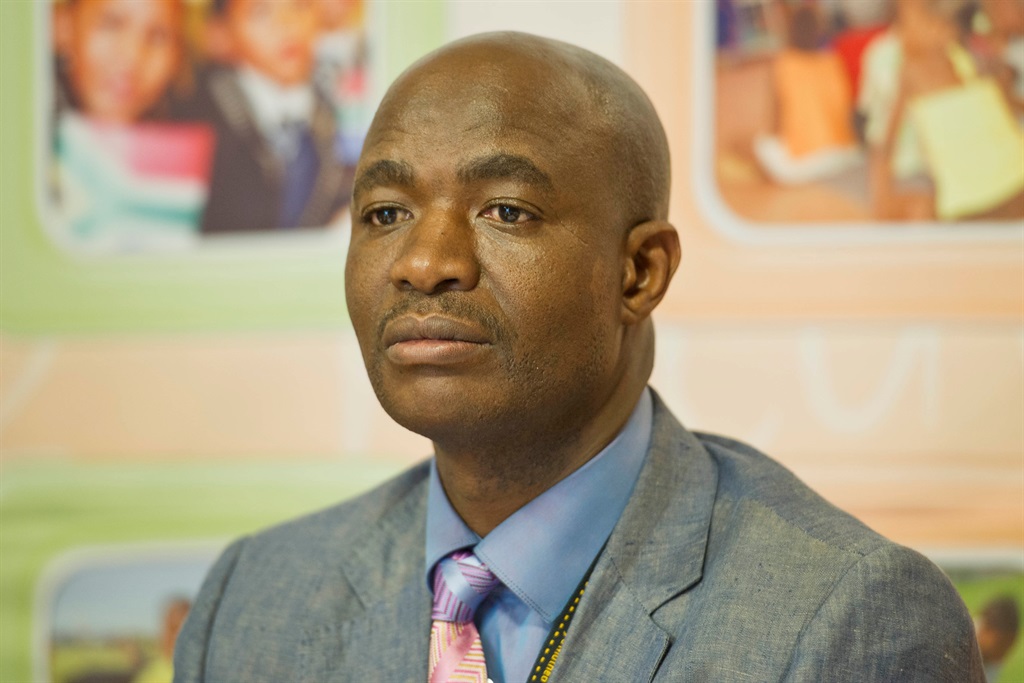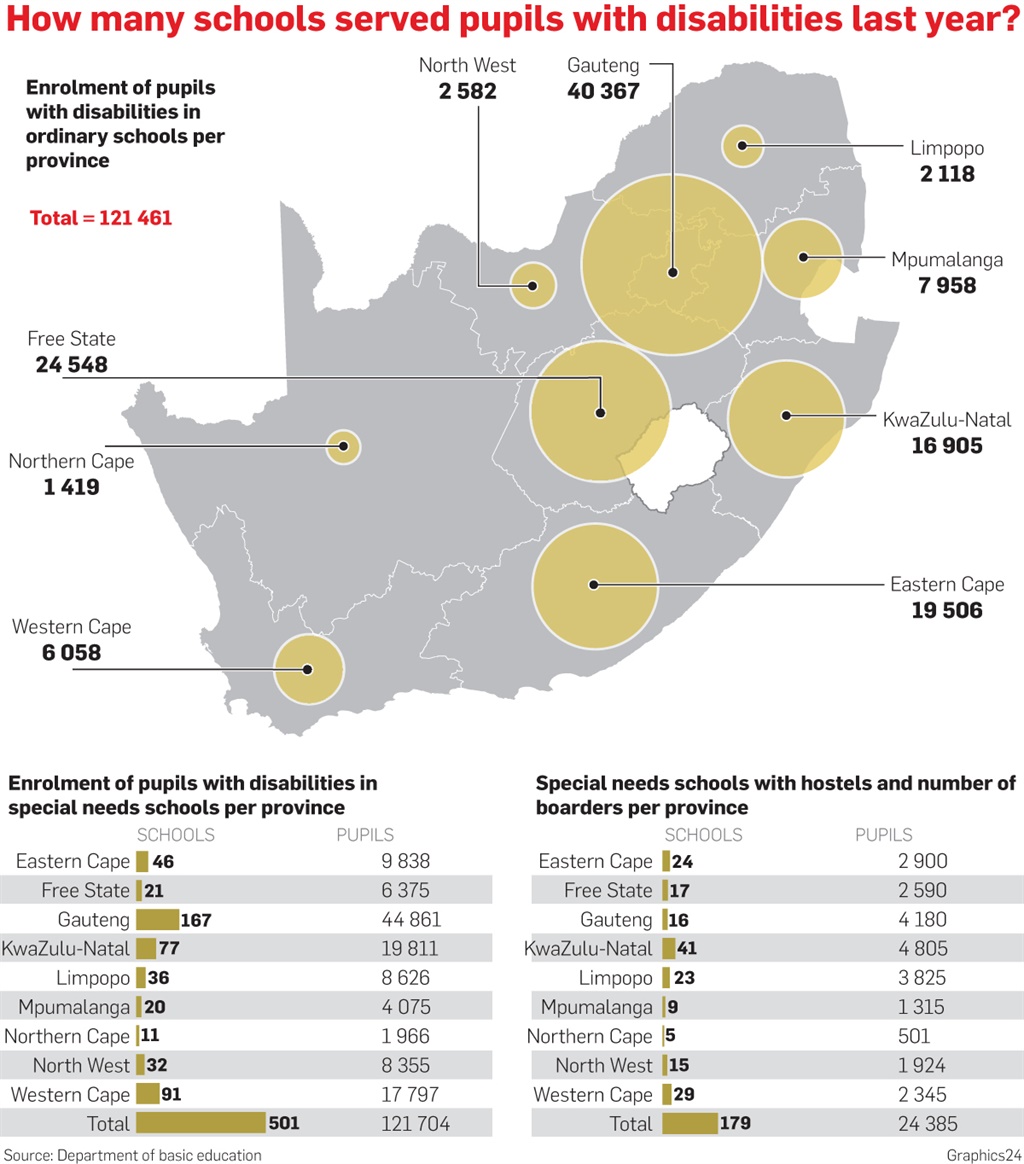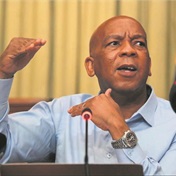
Children with disabilities, particularly in the Free State, could miss out on essential resources needed in schools if government does not rectify inaccurate numbers presented in Parliament.
City Press has uncovered that Mathanzima Mweli, director-general of the basic education department, might have unintentionally misled parliamentarians in the portfolio committee on basic education about the number of disabled pupils placed in schools.
In a report Mweli tabled at the committee meeting last month, he said Gauteng had not submitted details about the placement of pupils in special care centres.
However, Gauteng has denied not doing so.
The Western Cape education department said that Mweli’s numbers could have been based on “stale figures”.
The new financial year begins next month, meaning the basic education department will be channelling grant funds to provinces to enable them to perform their duties.
On Thursday, committee chairperson Bongiwe Mbinqo-Gigaba said the matter would be investigated.
“The committee has a real passion for children with special needs. As public representatives, it is our responsibility to help members of the public, especially those who cannot speak up for themselves.
“The committee is very disturbed by the allegations. As part of our oversight responsibility, we will be following this matter up with the department and the office of the director-general to get to the bottom of it.
“The committee will request an explanation from the department and will ask it to follow up with provinces to verify the statistics presented to the committee,” Mbinqo-Gigaba said.
Asked how this would affect government planning, including the allocation of resources, Mbinqo-Gigaba said that, at this stage, the committee could not say with certainty that “the figures or numbers were misrepresented”.
He added that the committee would bring the allegations to the attention of the provincial oversight committees in the affected provinces.
However, Zukiswa Kota, head of the Public Service Accountability Monitor based at Rhodes University in Makhanda, Eastern Cape, said the department’s infrastructure delivery had been complicated by a range of problems, including poor data management, weak planning systems and suboptimal resource use across provinces, which had adversely affected its ability to meet the needs of pupils.
“As with any enrolment numbers and the indication of needs within the education system, data must be credible and up to date. Where this is not the case, the risk of wasteful expenditure, misdirected resources and, worse, deprivation and underresourcing, is increased.”
But Bronagh Hammond, spokesperson for the Western Cape education department, said this was not the case in that province, where special care centres were funded by the health or social development departments.
“When a pupil is admitted to a public school, the per pupil subsidy applies. But there is a different funding formula in special care centres. It is only the Western Cape education department’s multidisciplinary teams, which provide therapeutic support, that are funded by the conditional grant from the basic education department.”
She said funding models were different in the rest of the provinces.
Accurate figures for such placements allow parliamentarians, who hold departments to account, to determine whether allocated government resources meet requirements.
Mweli’s report, which was presented last month, showed that, almost two months into the academic year, some provinces had either not placed disabled pupils in schools or the pupils were still on waiting lists.
In his presentation, Mweli indicated that some provinces did not submit reports relating to the placement of these pupils.
Mweli told the committee that Gauteng and the Free State had not submitted a report containing details of how many of these pupils had been placed in schools by February 18.
But Gauteng education spokesperson Steve Mabona said details of pupils supported in special care centres had been submitted to the basic education department.
“During this academic year, two pupils from special care centres were placed ... Also note that these transfers are facilitated as requests are made. It should be noted that the department does not have the jurisdiction to place [anyone in] special care centres.”
Mweli’s report was based on information the basic education department had received from provincial education departments.
City Press understands that Mweli’s department has no legislative powers to discipline any of the officials in provinces.
That power apparently lies with provincial premiers, who discipline senior officials such as department heads and MECs.
The senior leadership disciplines junior officials in the department.
- In the Eastern Cape, no assessment and placements of such pupils were made in schools;
- In KwaZulu-Natal, only 25 such pupils were placed, despite the province having a target of placing 150 pupils. “Although 37 pupils were assessed and referred for placement in schools, 12 could not be placed as their parents refused to allow the pupils to be placed in schools. The matter is being addressed by the province.”;
- In Limpopo, not one pupil was placed, even though the province has a target of 250. Mweli said “49 children were assessed and are awaiting placement”;
- In Mpumalanga, 14 pupils were placed, but the target was not indicated in its report to the national department. “Eight pupils were placed in full-service schools, four in special schools and two in ordinary schools.”;
- In North West, there were no pupils placed, despite the target of 80;
- In the Northern Cape, no pupils were placed, despite the target of 30; and
- In the Western Cape, only three pupils were placed, despite the target of 120.
However, basic education spokesperson Elijah Mhlanga denied that Mweli misled the committee: “The numbers in the slide concerned are numbers for the second quarter of 2019/20. They do not represent the number of all pupils who have been placed in schools. The total number of pupils who have been placed until the end of the third quarter, as provided by provincial education departments, is 232 pupils. The Gauteng and Western Cape departments of education are referring to the latest numbers. Therefore, the director-general did not mislead the portfolio committee.”
Regarding the Free State’s noncompliance, Mhlanga said the department followed the provisions of the Division of Revenue Act, and may withhold the grant transfer payment for 30 days if a province does not comply with the provisions of the act as no satisfactory explanation has been provided.
Hammond said they could only assume that the report sent to Mweli’s department contained outdated data as in two schools alone, in that province, there were two dedicated classes for such pupils.
“All pupils identified thus far have been accommodated,” Hammond said.
North West education department spokesperson Elias Malindi said at the time their report was developed, 80 pupils were targeted to be placed and only eight pupils were placed.
“This is as a result of unavailability of space in special schools and therefore pupils are on waiting lists. Please also note that schools operate with a post provisioning model (PPM) for placement [which] results from availability of either hostel accommodation or class space. “Another challenge is that a vacancy in accordance to a pupil’s special needs could be available at another district further from the care centre and/or pupil’s family which holds back the process as parents would want to be at reasonable vicinity with their children,” Malindi said.
Limpopo education spokesperson Sam Makondo said out of the 49 pupils that were assessed, the province managed to place 48 children in schools.
“One pupil is awaiting finalisation of the placement with the school identified,” Makondo said.
Mweli’s department and the committee had not responded at the time of writing.




 Publications
Publications
 Partners
Partners










